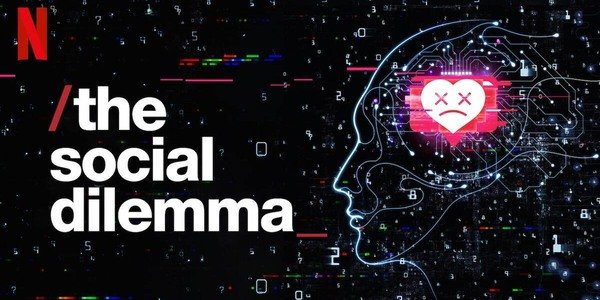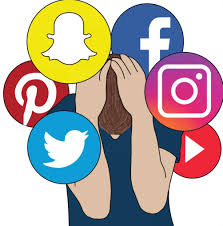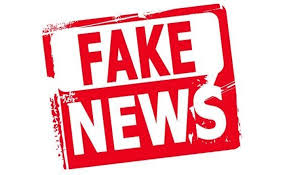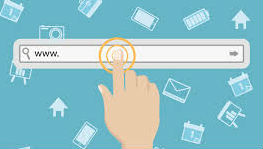
"There are two industries that call their customers users: illegal drugs and software."
Today I come to bring you one of the most interesting documentaries that have made me reflect on many things, both personally and socially.
The Social Dilemma is a production directed by Jeff Orlowski, which premiered in February 2020 at the Sundance Film Festival in the United States and which, seven months later, was included in the Netflix catalog.
The feature film features important voices from the technology industry, and this is what we are made to see in the first few minutes: Ex workers of Google, Twitter, Pinterest, Instagram... Even one of the co-breeders of what is probably one of the biggest resources of addiction on the network: the Facebook like button. It explains how this tool was always raised from a positive perspective and that they never came to think about the possibility that the number of likes could have any kind of negative consequence on a psychological level on people.
For no one it's a secret that when you upload a photo, you're always going to be curious how many people gave you "likes" and even who they were. It's happened to me, even that I don't upload pictures very often. And this is where we come to one of the main topics :
.jpg)
Why do social media hook up?
According to the experts interviewed in the documentary, psychology is behind everything. They themselves claim that it is your own mind that turns against you. Studies of human behaviors, their habits, taste, etc... come to the same end: to make money, thanks to advertising on social networks. In fact, behaviors such as watching social media as soon as you wake up or get frustrated if a post doesn't have the expected effect, are some of the most common signs of network addiction.
"Every action one takes is monitored and recorded. Exactly what image you look at and how long you look at it"
Most social network platforms practice these methods. In fact, the report mentioned a test, usually used by developers to do experiments between two variants and which of them is most attractive to the user. And this also happens with series like Narcos or Stranger Things, whose images within the platform are often changing until they identify the most attractive to viewers.
Most of what you choose to watch on Netflix is determined by a complex algorithm that doesn't just take into account what you see, but also what you saw a year ago, the time of day, or even whether you started a show but left it within 10 minutes. The streaming platform feeds on two types of data: explicit, when the user points out that they liked a series, and implicit ones, based on behavioral patterns. "You didn't explicitly tell us "I liked breaking bad," you just drink the series and saw it in two nights, so we understand it in a behavioral way.
There is also talk of how these algorithms exploit the vulnerabilities of human psychology, but it does so through a platform that is also not exempt from these practices. Because, if we think about it, I see the documentary under this same concept, so ironically I have also been part of what that algorithm tells me.
"Over time you get the false feeling that everyone agrees with you because all your news thinks like you"
.jpg)
Another aspect in which the documentary affects, and which personally is what worries me most because it happens so naturally in society, is how fake news campaigns at their wide on social networks in general and on Facebook in particular. Which is curiously one of the most used platforms in Lationamerica. It brings as a result the extreme polarization of public opinion and the flourishing of conspiracy theories.
"It's easy to think that they only convince a few stupid people, but the algorithm is getting smarter and smarter. Today you are convinced that the earth is flat, but tomorrow you will be convinced of another falsehood"
Taking time to contrast reality has become an endangered practice, it is something we have seen without going any further with the theme of COVID-19, since there are groups that avoid wearing masks and point to 5G telephony and Bill Gates as pandemic leaders to implant microchips through vaccines and thus control the minds of citizens.
I also have to say that if you're one of those people who think about that kind of things, I'm not going to tell you to change your mind, because every person can think and do what they want, as long as it doesn't affect other people. We are in a free world with endless information in which any kind of concern can be corroborated at any time.
What if I can tell you is that you investigate on your own, and don't let yourself be influenced by certain people that most (not all), just want is a little fame or get attention. That many of them, by the way, can have many followers, and have a lot of people to support him, but not because a lot of people follow him is what you would have to think or do.
I do not personally believe in those people who say that COVID-19 does not exist, because these people do not have the slightest proof of being educated on the medical, biological, etc... On the contrary, they have very little basis and logical basis for corroborating such information.
And even, I myself have family members who think that the coronavirus do not exist, because for them it is something created by the governments of the countries to keep us locked up. I must also say that here in Venezuela, where I live, the issue of information by the government is at least debatable, because of the number of inconsistencies and contradictions that these have had over the years. And it is very clear that they practice this type of manipulation on national channels, radios and social networks. So in that sense, the situation is complicated.

Although this documentary is highly recommended and even essential, the truth is that it is not perfect, because it suffers from not contrasting testimonies. The social dilemma tells us about the true goal of companies and the fate of our privacy that goes far beyond deploying personalized advertising. interesting revelations, painful findings, truths and data that we will certainly find difficult to know and recognize, such as:
-The increase of adolescents with depression and increase in the rate of suicides.
-Told us about the emotional and social inability to manage the demands of social networks.
-Receive a notification, take your cell phone out of your pocket and answer. It's a simple gesture that we've already naturalized and that, as Apple executives unveiled, we perform about 80 times a day.
-Every time we unlock the phone and interact, a company is struggling to make us spend more time in its app, be it WhatsApp, Instagram or Twitter.
It is true, however, that the internet and social media have changed humanity. There are also many positive things in this way that the world has connected. Not everything is dark, social media has helped a lot in the overall advancement of the world. Communication, business, marketing facilities, humanitarian aid, charities and many other things that would not be possible without them and would make the world a more difficult place to live.
Without further addition, I hope you liked it and take the time to watch the documentary that generated a lot of interest to me and that's why I bring it to you. Comment that you thought and also recommendations to improve that you will always be received. Thanks
Congratulations @davidvivaso! You have completed the following achievement on the Hive blockchain and have been rewarded with new badge(s) :
Your next target is to reach 100 upvotes.
You can view your badges on your board and compare yourself to others in the Ranking
If you no longer want to receive notifications, reply to this comment with the word
STOPCheck out the last post from @hivebuzz: